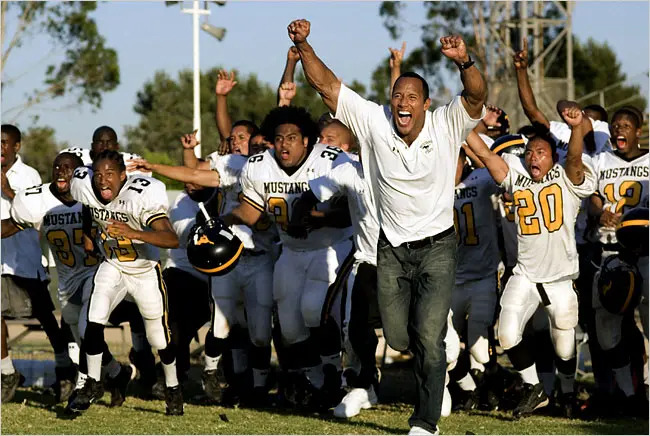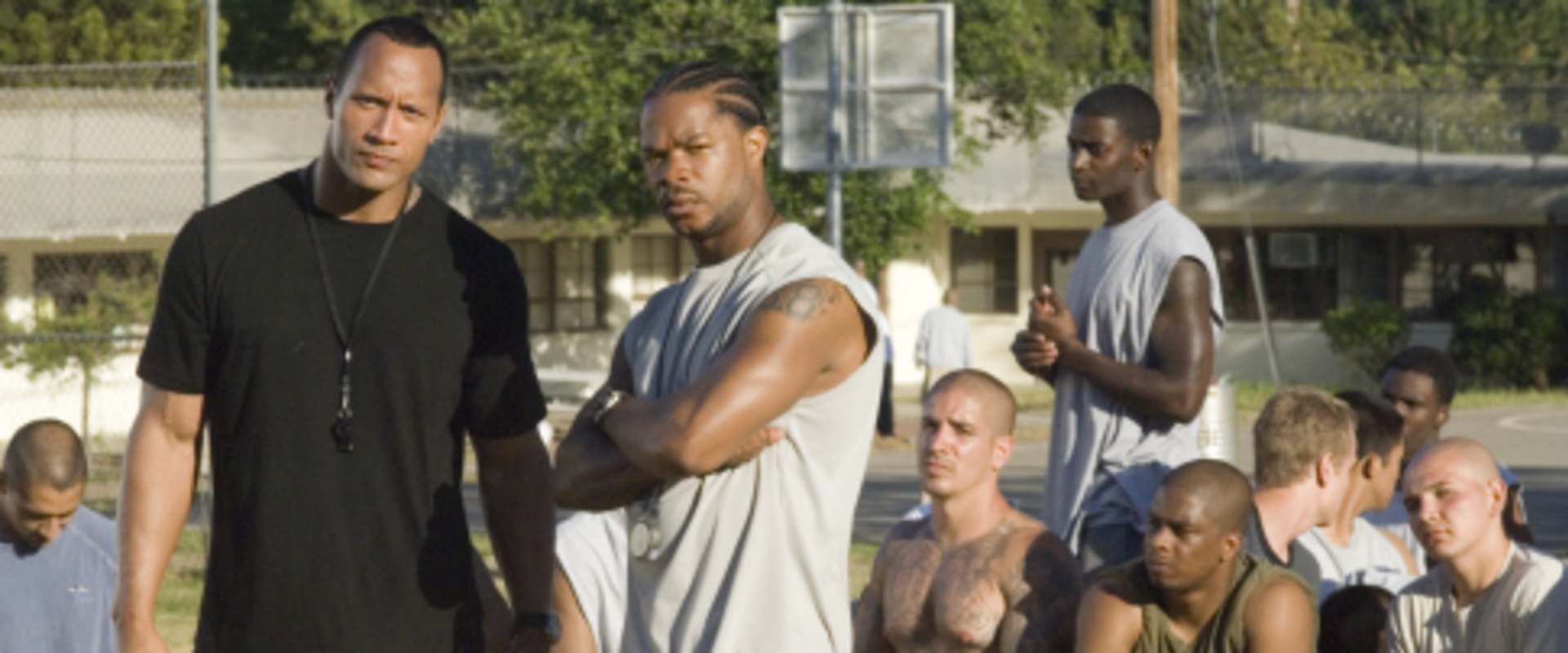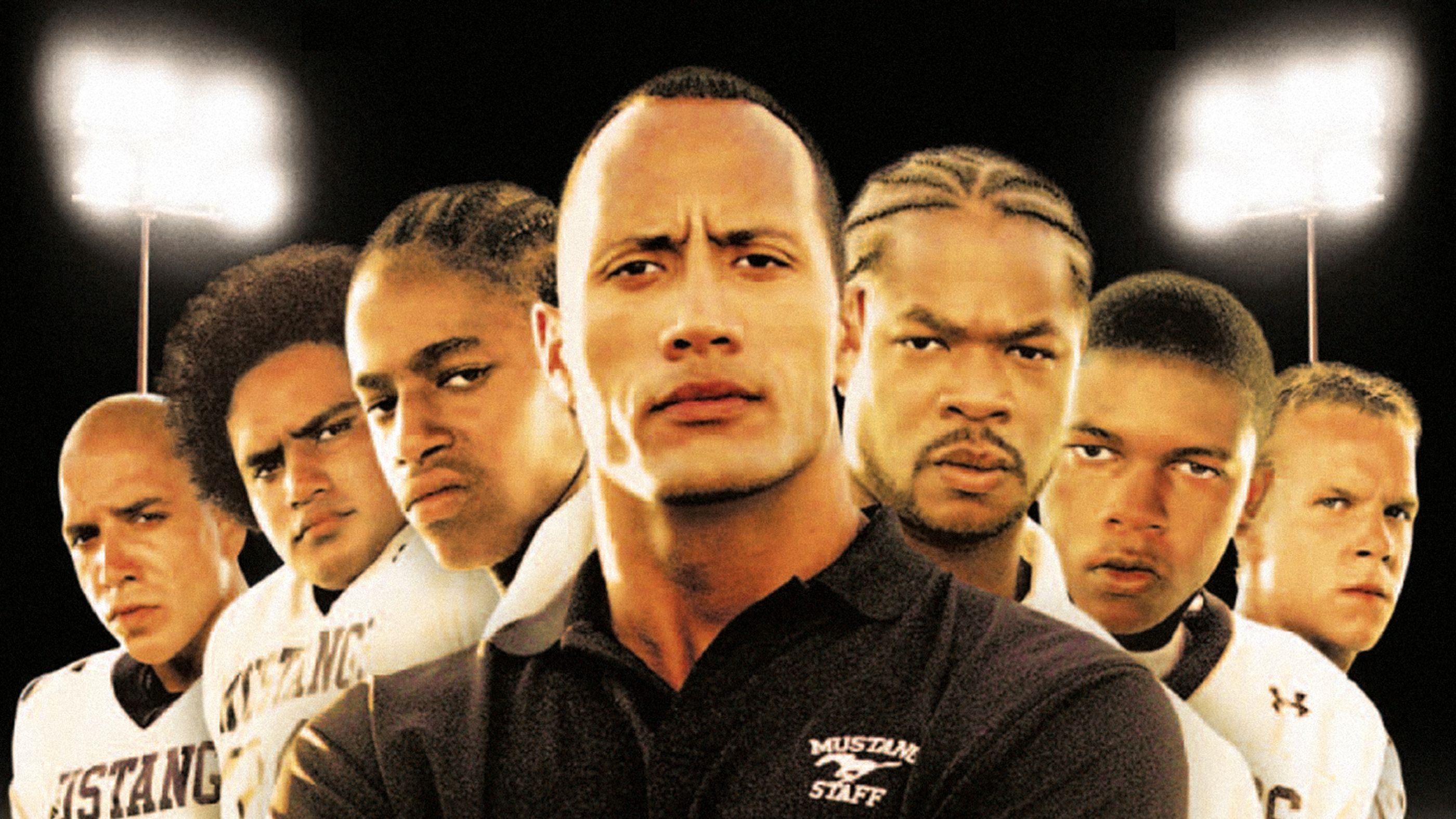Directed by Phil Joanou, ‘Gridiron Gang’ is a 2006 sports drama film that revolves around a juvenile detention center in Los Angeles, California. The movie centers on Coach Sean Porter (Dwayne Johnson), who is disappointed by his inability to assist the young people at the Kilpatrick Detention Center where he works. He makes the decision to form a football team in an effort to improve the lives of the neighborhood’s young people and promote a sense of community. The coach thinks the game will instill in the young players the discipline and responsibility they need to make positive changes in their lives.
Although at first reluctant, the youngsters quickly discover that they love the experience. However, things are not always as simple as they seem, and their road to success is paved with challenges and trials. Overall, seeing ‘Gridiron Gang’ is inspiring and is one of the best performances of Dwayne “the Rock” Johnson. The best part of the movie is its inspiring story, which keeps viewers interested and instills a sense of positivity, making the uplifting narrative seem so real. Curious to know if the story is based on real events or just a work of fiction? Here are all the answers you seek.
Gridiron Gang Draws on True Events at Camp Kilpatrick
The story of ‘Gridiron Gang’ is deeply rooted in actual events. The real-life incidents that surrounded Camp Kilpatrick in Los Angeles County and its football team, the Kilpatrick Mustangs, in the 1990 season served as the inspiration for the film. It’s interesting to note that the team also served as the focus of a 1993 Emmy Award-winning documentary of the same name. Despite being based on real events, there are a few instances where truth and the movie’s depiction of the events differ. Contrary to what is seen in the film, Camp Kilpatrick’s athletic program began in 1986 with the founding of a basketball team.

When he assisted in the creation of an eight-man football squad in 1988, Sean Porter became active in the program; however, at the time, this team did not compete against other schools. The squad had eleven players by the time it played a whole season against other educational institutions two years later, in 1990. The team’s journey to be accepted as “normal children” was nothing less than a daunting process that required a lot of dedication and teamwork, which the film has beautifully highlighted. A few scenes in the film are directly reenacted from actual events. Being merely teenagers, losing their first match made the kids cry, and it was used in the film.
Additionally, the scene where the Mustangs give the coach flowers following the loss of his mother in the middle of the game is also based on actual events. In an interview, Dwayne Johnson said, “Phil Joanou decided to show that not only did they lose their first game, those kids really did cry. Like babies, because they didn’t know how to handle that type of loss.” Particularly in their inaugural season, the Mustangs experienced timing problems and had a difficult time locating genuine opponents who would agree to play against them.
Nevertheless, few institutions were willing to play against the team as they believed in Kilpatrick’s ideas. After the squad’s inaugural year, things started to pick up as more schools began asking for games against the Mustangs because they liked what Kilpatrick and the team were doing overall. But in reality, the real Sean Porter didn’t think his squad would win in even a single game. Sean told Dwayne, which the actor shared with the Philadelphia Inquirer.

Dwayne recalled, “I expected to lose all the games. These kids never, ever played. Eventually, I knew that I was going to have to explain to them that it’s not about winning and losing; it’s about accepting this challenge.” Although he and his assistant, Coach Malcolm Moore did spend a day on the site, it appears that the real-life coach did not reveal a lot of information. Dwayne worked with whatever bits and pieces of information he got and mostly worked towards his character development based on the 1993 documentary to give justice to his role.
Porter had some worries about the film’s production and was especially concerned for some players, such as Junior Palaita, who had a troubled past. Although the latter had overcome his past and was an active member of the community, he believed that he may still face prejudice because of the portrayal of his old life in the film.
Some of the Kilpatrick Mustangs were finishing up their studies at the time of the film’s release, and two were supposedly in prison. Although not perfect, the statistics show the effectiveness of Porter’s strategies and the reason why the 1990 Mustangs squad has been the focus of two distinct on-screen productions. As a result, ‘Gridiron Gang’ not only accurately depicts actual events but also tells a heartwarming tale that will inspire fans in the days to come.
Read More: Best Football Movies and Shows on Netflix


You must be logged in to post a comment.